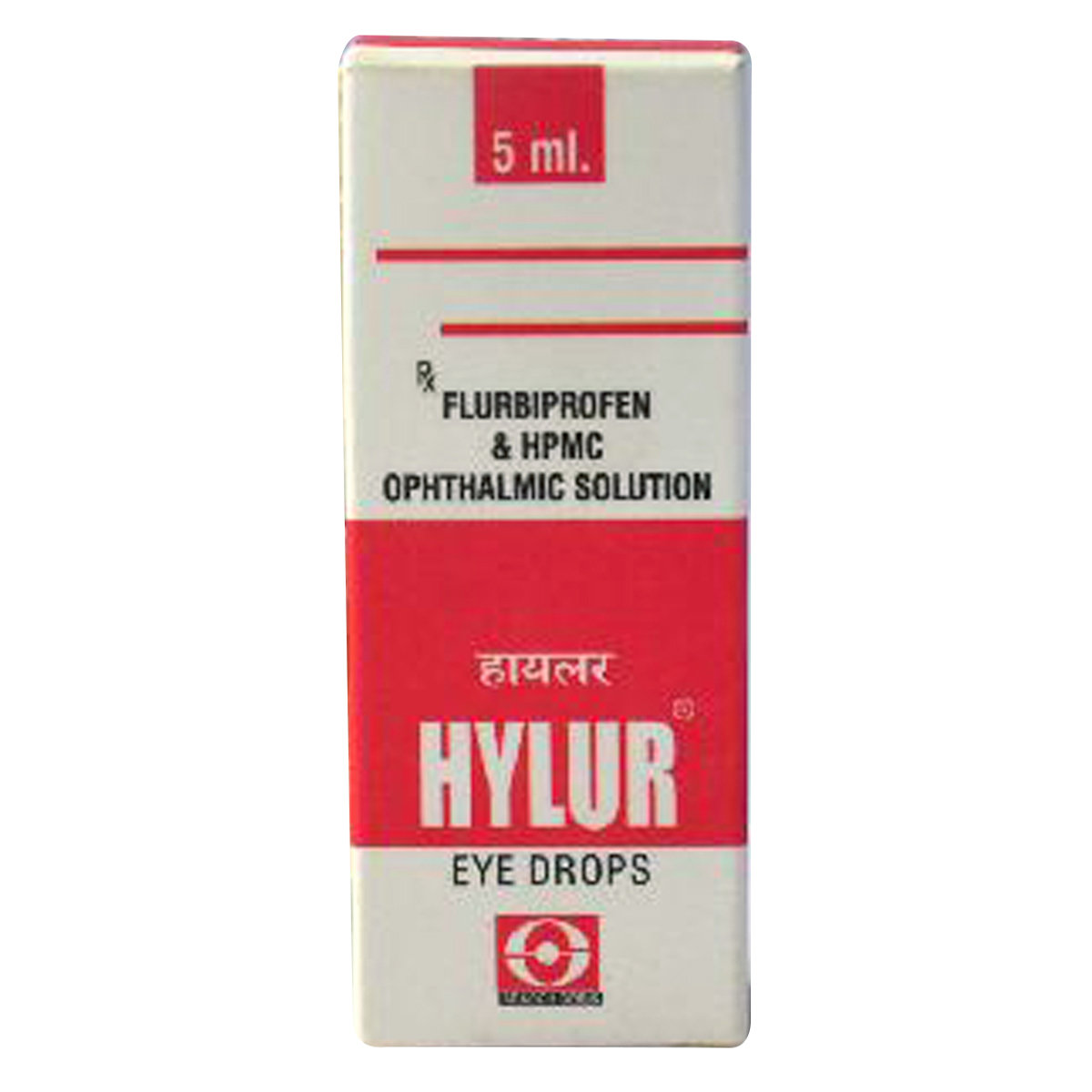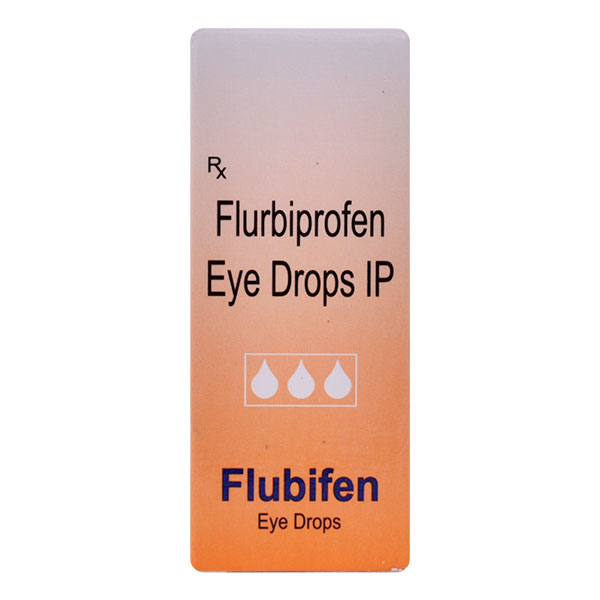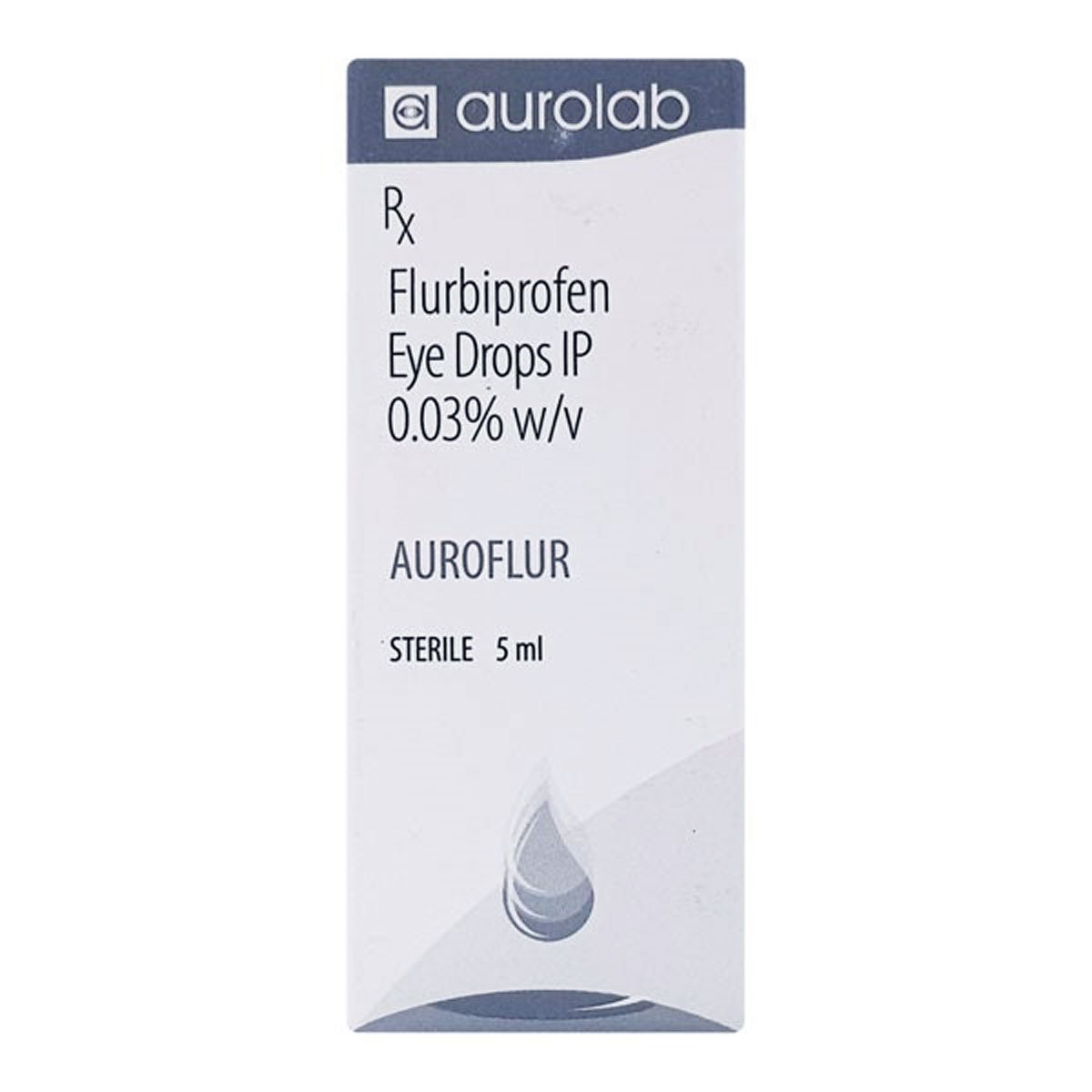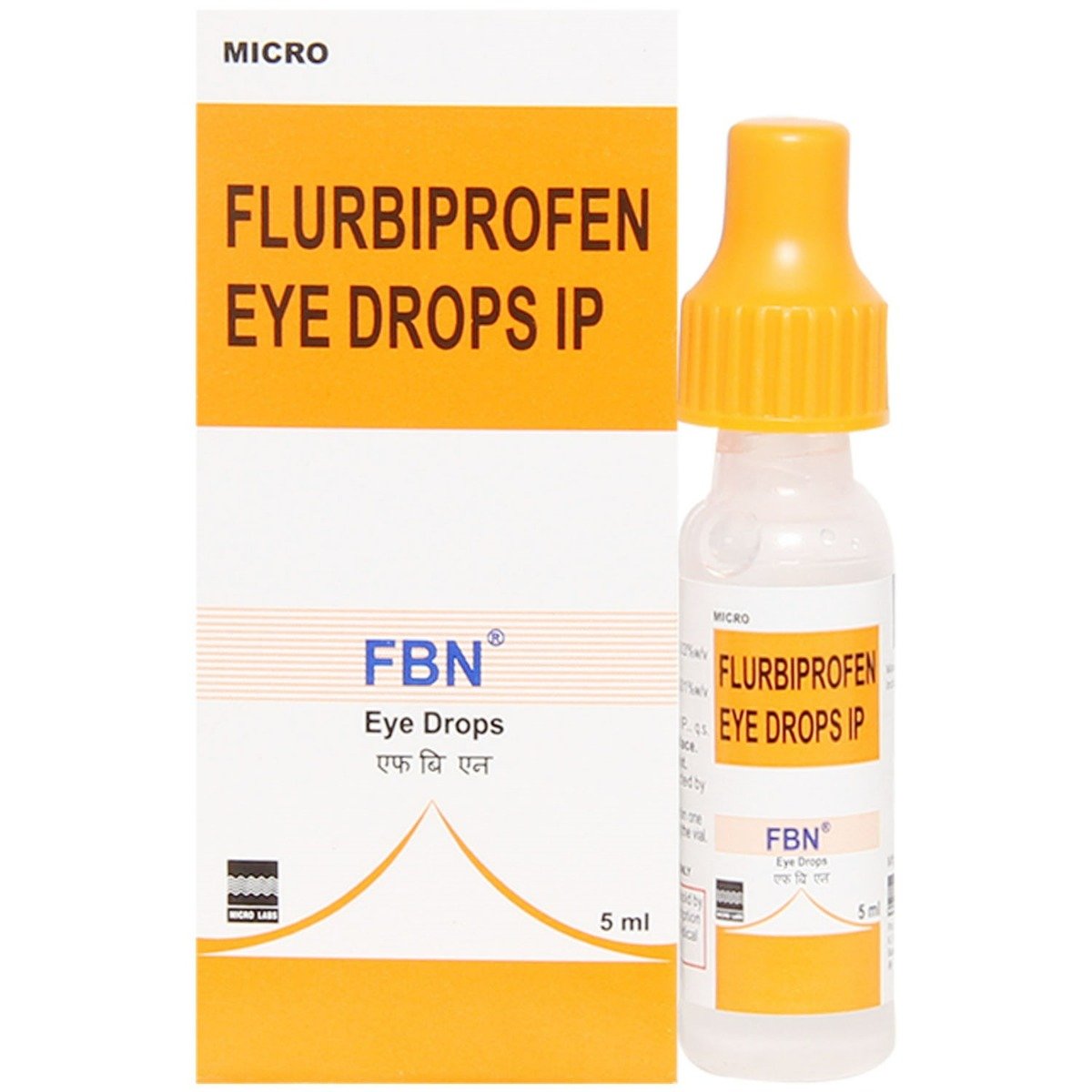G Flur 0.03% Eye Drop
MRP ₹70
(Inclusive of all Taxes)
₹10.5 Cashback (15%)
Provide Delivery Location
Online payment accepted
 Prescription drug
Prescription drugWhats That
About G Flur 0.03% Eye Drop
G Flur 0.03% Eye Drop belongs to the group of non-steroidal anti-inflammatory drugs (NSAIDs) used to control eye inflammation before and after eye surgery (such as cataract removal) and laser surgery. It also prevents intraoperative miosis (decreased pupil size) during surgery.
G Flur 0.03% Eye Drop is composed of Flurbiprofen, an ophthalmic anti-inflammatory agent. It works by preventing the pupil of the eye from narrowing, thus making it easier to examine the eye, remove the cataract and replace a new lens by the doctor. It is also used to relieve eye pain and inflammation after surgery.
G Flur 0.03% Eye Drop is for ophthalmic (for the eye) use only. Common side effects of G Flur 0.03% Eye Drop include eye redness, irritation, burning or a stinging sensation at the application site, and temporary blurred vision. These side effects may not occur in every patient using this medication and differ individually. If the side effects persist longer or worsen, please seek a doctor's advice.
Tell your doctor if you are allergic to G Flur 0.03% Eye Drop or other medications. Avoid contact of the tip of the dispensing container with the eye, eyelids, fingers, and other surfaces to prevent contamination. If you are pregnant and breastfeeding, inform your doctor before using G Flur 0.03% Eye Drop. This medicine may cause temporary blurred vision; hence drive only when you are alert and have clear vision. G Flur 0.03% Eye Drop should be used in children only if advised by a doctor.
Uses of G Flur 0.03% Eye Drop
Directions for Use
Key Benefits
G Flur 0.03% Eye Drop contains Flurbiprofen which prevents the pupil of the eye from narrowing, thus making it easier for the eye examination to remove the cataract and replace a new lens by the doctor. It is a non-steroidal anti-inflammatory drug that inhibits prostaglandins and maintains intraoperative pupil dilation (widening). It further relieves pain and inflammation of the eye after surgery.
Storage
Drug Warnings
If you have allergic reactions to medicines/NSAIDs (sneezing, runny or stuffy nose, or wheezing), asthma, viral eye infections, and bleeding and blood clotting problems, inform your doctor before starting G Flur 0.03% Eye Drop. It is advised to check with your doctor before using G Flur 0.03% Eye Drop if you are pregnant or breastfeeding. Avoid driving or operating machines until you have a clear vision since the administration of G Flur 0.03% Eye Drop may cause temporary blurred vision for a while.
Diet & Lifestyle Advise
- Manage stress, eat healthily, drink plenty of water, exercise regularly, and get plenty of sleep.
- Eat food rich in antioxidants such as berries, spinach, kidney beans, dark chocolate, etc.
- Know your allergy triggers, such as pollen, dust and other factors.
- Do not rub your eyes even though some ophthalmic drugs make your eye itchy.
- If you wear contact lenses: Clean and replace contact lenses more often. Never share contact lenses. Always wash your hands before inserting and removing the contact lens.
- Avoid staring at digital screens for longer durations. Rest your eyes every 20 minutes.
- Avoid or limit the intake of alcohol and caffeine.
Side Effects of G Flur 0.03% Eye Drop
- Redness of the eye
- Irritation
- Stinging/burning sensation
- Temporary blurred vision
Habit Forming
Therapeutic Class
All Substitutes & Brand Comparisons
RX
Out of StockHylur Eye Drop
₹25.2
(₹4.54/ 1ml)
63% CHEAPERRX
Out of StockFlurbeen 0.03% Eye Drop
₹27
(₹4.86/ 1ml)
61% CHEAPERRX
Out of StockHylur Eye Drops 5 ml
Search Orbis Pharmaceuticals Pvt Ltd
₹30
(₹5.4/ 1ml)
57% CHEAPER
Author Details
We provide you with authentic, trustworthy and relevant information
FAQs
Drug-Drug Interactions Checker List
- CLOPIDOGREL
- WARFARIN
- ENOXAPARIN
- PREDNISONE
Disease/Condition Glossary
Pupil constriction: Narrowing or constriction of the pupil of the eye during any eye surgery can make every step of the surgical procedure difficult. It may also lead to increased injury risk and reduce visualization during cataract removal and lens implantation. Non-steroidal anti-inflammatory drugs (NSAIDs) inhibit prostaglandins and maintain intraoperative pupil dilation, thus making it easier to perform eye surgery.

Have a query?
Alcohol
Safe if prescribed
There is limited information on how alcohol consumption affects G Flur 0.03% Eye Drop. Please consult your doctor before using G Flur 0.03% Eye Drop.
Pregnancy
Consult your doctor
If you plan to conceive or are already pregnant, inform your doctor before using G Flur 0.03% Eye Drop. Your doctor may prescribe this medicine if the benefits outweigh the risks.
Breast Feeding
Consult your doctor
If you are breastfeeding, please consult your doctor before using G Flur 0.03% Eye Drop.
Driving
Safe if prescribed
G Flur 0.03% Eye Drop may cause side effects like blurry vision, affecting your driving ability. Do not drive or operate machinery in such cases. Drive only when you are alert and have a clear vision
Liver
Consult your doctor
Let your doctor know if you have any history of liver diseases before instilling G Flur 0.03% Eye Drop.
Kidney
Consult your doctor
Let your doctor know if you have any history of kidney diseases before instilling G Flur 0.03% Eye Drop.
Children
Safe if prescribed
G Flur 0.03% Eye Drop can be used in children only when advised by a doctor.











